 An Open Letter to University Presidents
An Open Letter to University Presidents
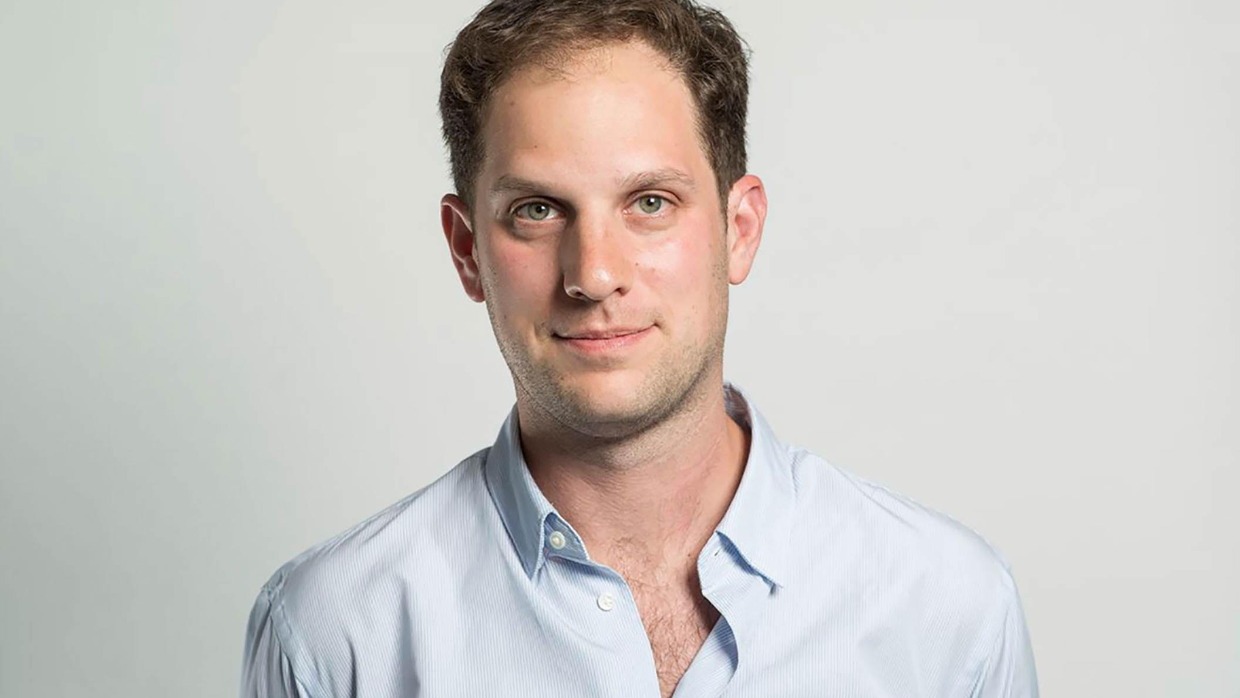

8 min read
The Jewish journalist is imprisoned on trumped-up charges in Russia.
On Wednesday, March 29, 31-year-old Evan Gershkovich, an American reporter for the Wall Street Journal, was arrested in the Russian city of Yekaterinburg on charges of espionage, becoming the first American correspondent held as a spy in Russia since the end of the Cold War. Evan, his family, the Wall Street Journal, and the US Government vehemently deny any accusation that he’s a spy. If convicted, Evan could be imprisoned for up to 20 years.
Here are six pressing facts that you need to know about Evan Gershkovich.
Evan’s parents Ella and Mikhail fled the Soviet Union in the 1970s, escaping the crushing antisemitism under which they lived.
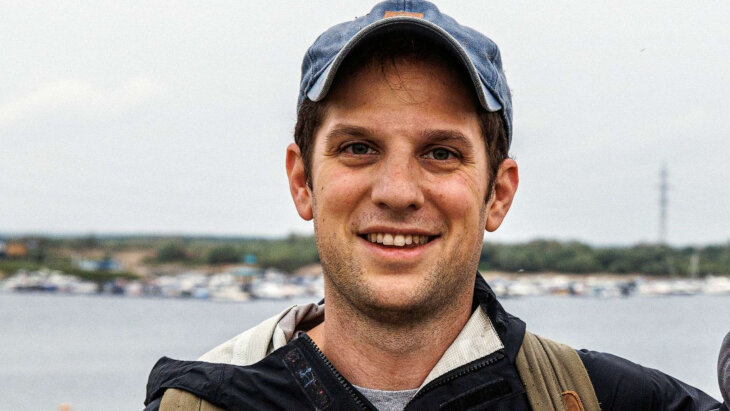
Ella remembers her own mother, a Ukrainian Jew who survived the Holocaust, used to cry as she recalled treating survivors in a Polish military hospital at the end of the war. Ella fled the USSR when she was 22 years old, after hearing rumors that Jews were about to be deported to Siberia. She traveled using Israeli documents and moved to Detroit where she met Mikhail, a fellow Soviet Jew who’d also recently settled in the United States.
The Gershkovich family soon moved from Detroit to Princeton, New Jersey, where they raised Evan and his older sister Danielle. The family always spoke Russian at home. Even today, when Evan was allowed to write a precious letter to his parents, he wrote to them in the family’s native Russian language.
Friends and colleagues describe Evan as fun-loving and brilliant, and incredibly hard working.
The father of Evan’s college roommate has written about his first impression of Evan. After dropping his son Simon off at Bowdoin College in Maine, the award-winning TV and movie producer Stan Brooks and his wife noticed Evan, who was bright and charismatic. “He was the other Jewish kid on the floor besides Simon.” Evan and Simon eventually became best friends and roommates. Stan Brooks describes: “It was hard not to like Evan Gershkovich from the first time you met him. His smile was infectious and he loved life. Despite having to work two jobs to pay for his tuition, in addition to hours and hours on the soccer field, you always felt like Evan had the world by the tail. e had a gift to gab and wanted to be a writer, preferably a journalist that could travel the world.”
 Evan with his mother, Ella
Evan with his mother, Ella
Evan got an internship with The New York Times, then moved to Russia and worked for an English-language newspaper called The Moscow Times, then Agence-France Presse. A colleague recalled finding Evan sitting in a Moscow coffee shop one day, applying for a job with The Wall Street Journal. “Mr. Gershkovich tilted his laptop to show him the application form, as if to encourage him to apply as well.” Open and generous, it seemed to be a classic Evan move.
Evan was hired at the start of 2022. The following month, Russia invaded Ukraine, and Evan was assigned to cover the progress of the war, travelling to the Belorussian-Ukrainian border. He became the first American journalist to report on wounded Russian troops being evacuated home.
In Russia, Evan became more interested in his Jewish identity than ever before. His mother Ella recalled visiting him in Russia and taking him to a synagogue. She’d passed by it as a teenager but had always been too afraid to enter. As a child, she recalls being told that anyone walking into the building would be photographed and even arrested by the KGB.
On her visit, she and Evan entered the synagogue together. “That’s when Evan started to understand us better,” she explained. He understood the fear that drove his parents to emigrate and build knew lives in the United States.
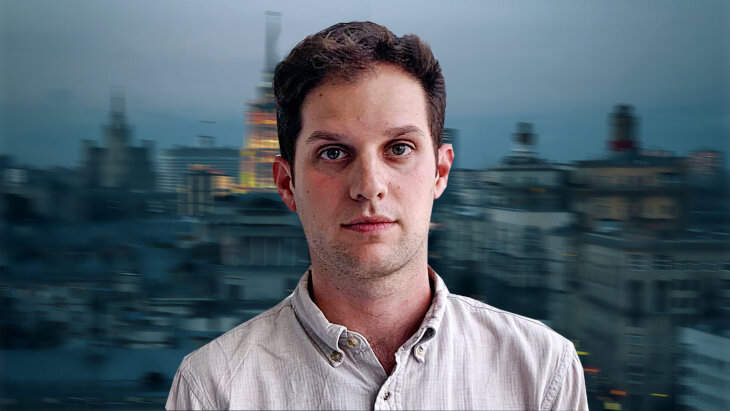
At The Moscow Times, Evan reported on Jewish life in the city. In an 2019 article, for instance, he described hundreds of Jews gathering to openly celebrate Hanukkah in Ploshchad Revolyutsii, a square in the center of Moscow. “Taking place just a stone’s throw from the Kremlin, which promoted a policy of state-sponsored antisemitism during the Soviet era,” he wrote, “what has become a ritual nonetheless continues to surprise those who participate, given the country’s history.”
The mood in Russia has become much darker over the past year, as criticism of government policy has become increasingly dangerous. Soon after Russia’s invasion of Ukraine in February 2022, The Wall Street Journal transferred Evan to its London office, fearing for his safety. After several months in London, Evan begged to go back. He wanted to resume reporting on what he saw as the incredibly vital and difficult story of Russia’s changing political and cultural landscape.
Back in Russia, the atmosphere had changed. Evan rarely made personal comments about Russian society, preferring to report the facts, but in July 2022, he tweeted: “Reporting on Russia is now also a regular practice of watching people you know get locked away for years.” Despite the danger of reporting on Russian politics and the war in Ukraine, Evan persevered.
Russian security officers followed Evan on at least one reporting trip, filming his movements and telling locals not to speak with him. He assumed that his phone was bugged and he downloaded a GPS tracking app so that colleagues could watch his movements. That’s how the alarm was first raised on March 29, on Evan’s fateful trip to Yekaterinburg, where he travelled to report on the Russian mercenary group Wagner, which has fielded soldiers in some of the most brutal fighting in eastern Ukraine.
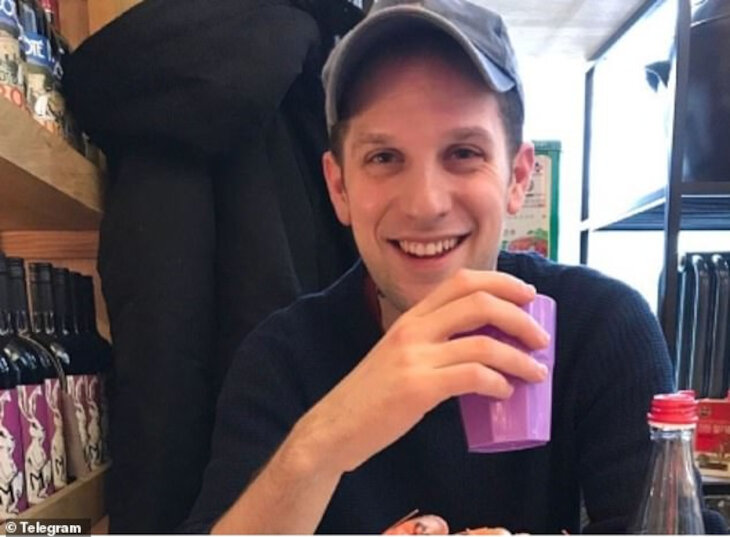
When he arrived in the city, he texted his colleagues, “Landed, out the airport.” Hours later, a colleague noticed that Evan hadn’t texted in a while. “Have you been in touch with Evan?” he messaged a Wall Street Journal security officer, who responded, “Working on it.” The Wall Street Journal sent a local person to Evan’s rented apartment in Yekaterinburg, and tried to retrace his movements. The following morning, Russian journalists captured footage of Evan being forced into a car by Russian security officials.
On Thursday, March 30, the Russian state news agency announced that Evan had been arrested for espionage, a charge that the US Government has vigorously denied. A group of major American news outlets issued a statement saying “Evan’s detention is intended to have a chilling effect on independent journalism and deprive the public of essential news.”
Evan is being held in Moscow’s notorious Lefortovo Prison. Used as a jail since Czarist times, the prison has held some of Russia’s most famous political prisoners. Torture and executions have taken place behind its forbidding walls. Yevgeny Smirnov, a lawyer who’s defended prisoners accused of treason and espionage, describes the prison as a brutal place, designed to break down prisoners’ will to resist. “No calls, no visitation, no newspapers, nothing… At best, they will receive letters - and even then most likely with a delay of a month or two. It’s one of the tools of suppression.”
Evan’s family has received one letter from him, dated April 5. He confirmed that he did receive a care package from a friend, containing toiletries, slippers, and pens. Evan has been allowed to meet with his Russian attorney and after a month of imprisonment he just received his first visit with a US official – with the United States’ ambassador to Russia, Lynne Tracy. The diplomat tweeted, “He is in good health and remains strong. We reiterate our call for his immediate release.”
US Special Presidential Envoy Roger Carstens has promised to free Evan, along with US Marine Paul Whelan, who has also been accused of espionage in Russia. “We will bring Paul Whelan and Evan Gershkovich home,” he told NPR. Russia, however, has vowed that any prisoner swap is impossible until after Evan is tried in Russian courts, a process that could take over a year.
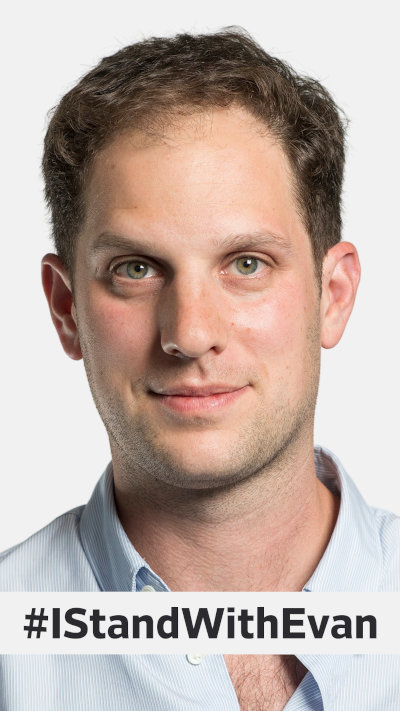
Jews around the world are refusing to forget Evan. Over Passover, many Jews set an empty place at their Seder tables to remember the imprisoned journalist. A central Jewish commandment is Pidyon Shvuyim, redeeming captives, to do all you can to free your fellow Jews who are unjustly held, no matter where they are in the world.

What is his full Hebrew name & mother’s name?
please post Evan's Hebrew name and his mother's Hebrew name